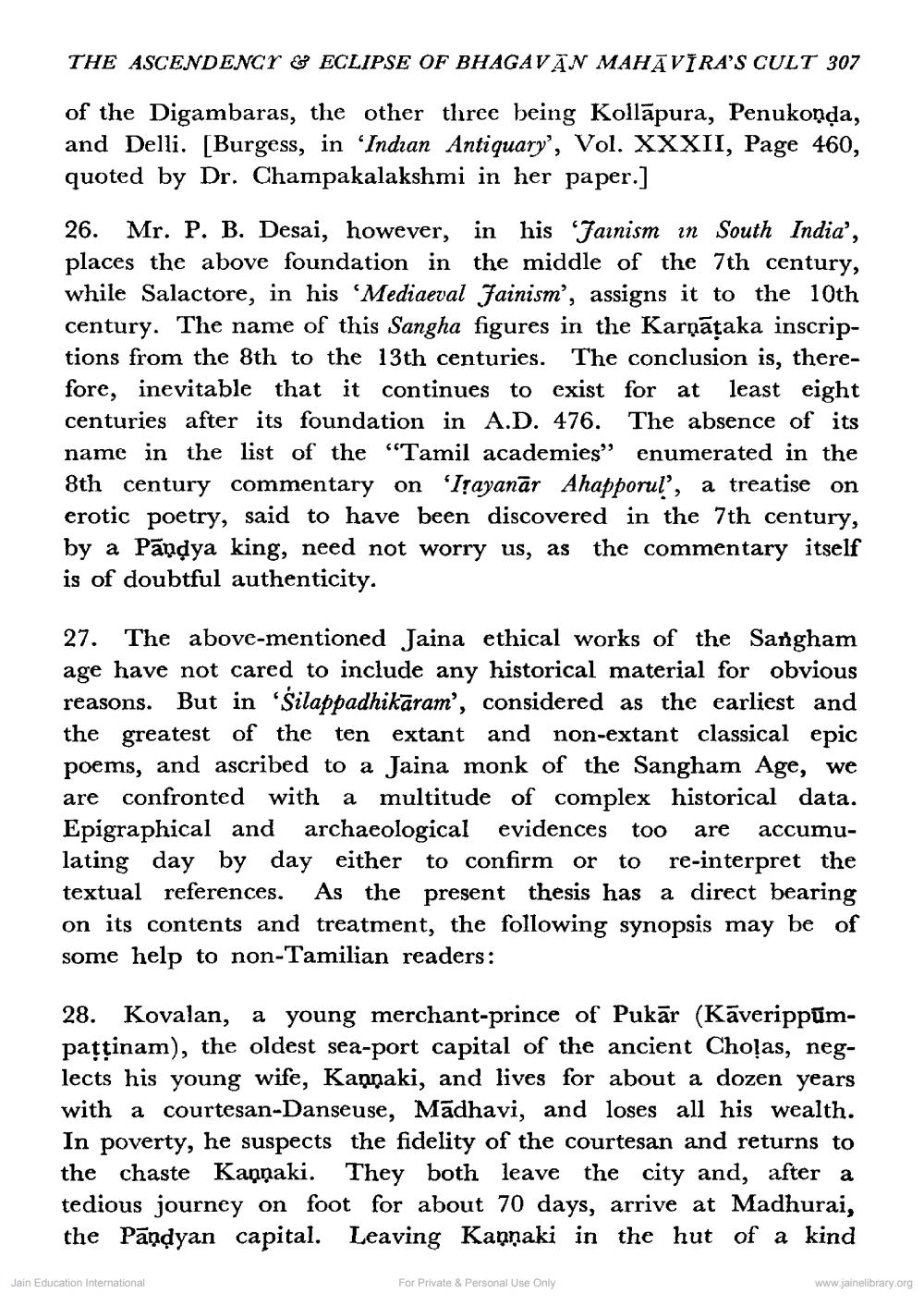________________
THE ASCENDENCE & ECLIPSE OF BHAGAVAN MAHĀVĪRA’S CULT 307
of the Digambaras, the other three being Kollāpura, Penukonda, and Delli. [Burgess, in 'Indian Antiquary', Vol. XXXII, Page 460, quoted by Dr. Champakalakshmi in her paper.]
26. Mr. P. B. Desai, however, in his Jainism in South India', places the above foundation in the middle of the 7th century, while Salactore, in his 'Mediaeval Jainism', assigns it to the 10th century. The name of this Sangha figures in the Karņāțaka inscriptions from the 8th to the 13th centuries. The conclusion is, therefore, inevitable that it continues to exist for at least eight centuries after its foundation in A.D. 476. The absence of its name in the list of the “Tamil academies" enumerated in the 8th century commentary on 'Ițayanār Ahapporul, a treatise on erotic poetry, said to have been discovered in the 7th century, by a Pāņdya king, need not worry us, as the commentary itself is of doubtful authenticity.
27. The above-mentioned Jaina ethical works of the Sangham age have not cared to include any historical material for obvious reasons. But in 'Silappadhikāram', considered as the earliest and the greatest of the ten extant and non-extant classical epic poems, and ascribed to a Jaina monk of the Sangham Age, we are confronted with a multitude of complex historical data. Epigraphical and archaeological evidences too are accumulating day by day either to confirm or to re-interpret the textual references. As the present thesis has a direct bearing on its contents and treatment, the following synopsis may be of some help to non-Tamilian readers:
28. Kovalan, a young merchant-prince of Pukār (Kāverippūmpattinam), the oldest sea-port capital of the ancient Choļas, neglects his young wife, Kaņnaki, and lives for about a dozen years with a courtesan-Danseuse, Madhavi, and loses all his wealth. In poverty, he suspects the fidelity of the courtesan and returns to the chaste Kannaki. They both leave the city and, after a tedious journey on foot for about 70 days, arrive at Madhurai, the Pāņdyan capital. Leaving Kapnaki in the hut of a kind
Jain Education International
For Private & Personal Use Only
www.jainelibrary.org




